Student Information
EMHS does more than just teach classes - we instill discipline and experience. Students have the opportunity to engage with stakeholders in emergency management, homeland security, and the intelligence community. Alumni are working at every level of EM, for federal intelligence law enforcement and intelligence agencies, and in the private sector. EMHS provides a foundational experience on how things work, critical thinking, and problem solving.
Advising
All of our faculty and staff can answer questions - but we have experts in a variety of administrative specialties. If you need help choosing classes, working with your major program, or coordinating with the University on transcripts, registration, or graduation, let us know.
Chantelle Tuffigo, Advisor |
ctuffigo@em.fsu.edu
Chantelle is the primary academic advisor for EMHS - she should be your first stop for program questions, issues, and advising.
Sierra Perna, Student Outreach Coordinator |
sperna@em.fsu.edu
Sierra is the primary contact for students looking for internships or other professional opportunities.
Sue Sullivan, Faculty Advisor |
ssullivan@em.fsu.edu
Sue is an advisor for EMHS, and also handles all requests for paper certificates. She can also answer questions on course capacities and upcoming course offerings.
Brad Skillman, Deputy Director |
bskillman@em.fsu.edu
Brad is the EMHS Deputy Director and can answer any questions about course mapping, offerings, and certificate requirements. Brad also handles all requests for Certificates with Honors.
David Merrick, Director |
dmerrick@em.fsu.edu
David is the EMHS Director and can help solve any problem not addressed by other faculty and staff.
Completing Your Certificate
When applying to graduate, students will see their certificate listed as “Not Eligible for Selection.” While this alarms many students at first, it is simply the way the larger University system has set up the application to graduate, and does not actually reflect your certificate status. In fact, students do not need to request or apply for anything to prompt our office to verify your certificate status as it relates to graduation. Our academic advisor does this automatically at the end of each semester. Completed certificates will be noted on your transcript shortly after grades post.
If you have completed all the requirements for your certificate(s) and have also reached graduation, you can request a physical copy of your certificate below:
Request Printed Copy of Certificate
Successful completion of certificate courses is defined as a grade of C or higher. Students who receive grades lower than a C in any course must repeat that course if they wish to have it count towards any of our department’s certificates. Graduate students must earn an overall GPA of 3.0 or a “B” average across all courses counting towards a certificate. Please speak to our advisor Chantelle Tuffigo for any questions about your certificate progress.
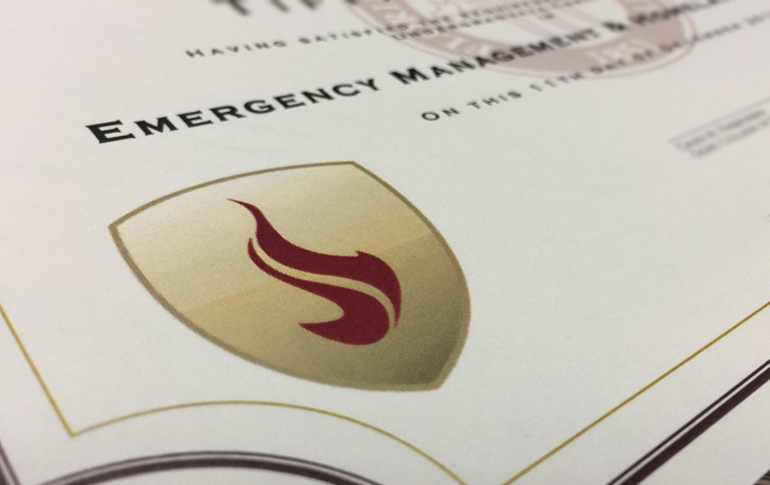
240+
Certificates issued each year.
Internship Program
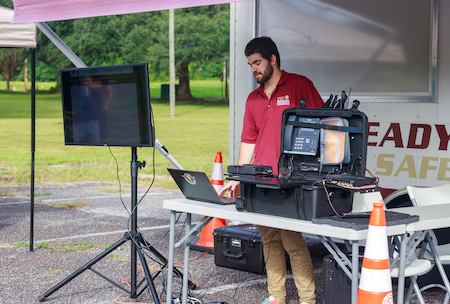
15+
Local, State, Federal, and NGO partners.
The Emergency Management and Homeland Security (EMHS) Program provides graduate and undergraduate students with guidance towards the successful completion of an internship with agencies active in Emergency Management, Domestic Preparedness, Intelligence, and National Security.
Using our close working relationships with the local, state, and federal agencies, our program coordinators assist in identifying internship opportunities based on student interest and location preferences. These internships may be highly competitive. To maintain our strong relationships with host agencies, EMHS interns are evaluated prior to placement using the highest intellectual and professional standards expected of anyone representing our program and Florida State University.
Those interested in an internship should contact us 1-3 semesters prior to the desired internship. Our Internship Coordinator is Sierra Perna.
Pathways Program
Participation in our internship programs requires the student’s successful completion of our seminar series, Professional Pathways in Emergency Management. Completion of the series does not guarantee an internship placement, however not enrolling may preclude students from some of our more competitive opportunities.
While much of our professional development instruction is applicable to all fields, EMHS also offers path-specific guidance to ensure students reach their goals. Internship paths are detailed below, including information on when students should enroll and what prerequisites should be completed.
Emergency Management. Students primarily interested in emergency management are placed in internships with the State of Florida’s Division of Emergency Management, county emergency management offices, with FEMA or other federal agencies, or even in the private sector. These internships are generally offered every semester. Professional Pathways should be taken one to two semesters prior to interning, and should be preceded by PAD 4391/5397 Foundations in Emergency Management or PAD 4393/5398 Emergency Management Programs, Planning, and Policy.
Intelligence and Homeland Security. Students pursuing the intelligence and homeland security path are placed in internships with local law enforcement homeland security functions, federal intelligence agencies, military combatant commands, local intelligence units, and state preparedness agencies. These internships are offered either every semester or every summer, depending on the organization. Professional Pathways should be taken one to three semesters prior to interning, and should be preceded by PAD 4842/5849 U.S. Intelligence Policy or PAD 4841/5896 U.S. Intelligence Analysis and Communication. Specific internship opportunities may have different requirements.
Unmanned Aircraft Systems. Students who intern through the unmanned aircraft systems path are placed in internships with the Florida Division of Emergency Management Air Operations Branch, regional Florida task forces around the state, and private companies. These internships are offered less regularly, but with at least one open every semester. Professional Pathways should be taken one semester prior to interning and should be preceded by PAD 4075/5079 UAS in Emergency Management and PAD 4072/5078 Applications of UAS.
The seminar will meet every Wednesday from 1:20-2:10. This is a 1 credit hour course (information can be found via course look up on my.fsu.edu) and requires instructor permission to enroll. If you are interested please reach out to Sierra Perna.
Student Opportunities
SIERA
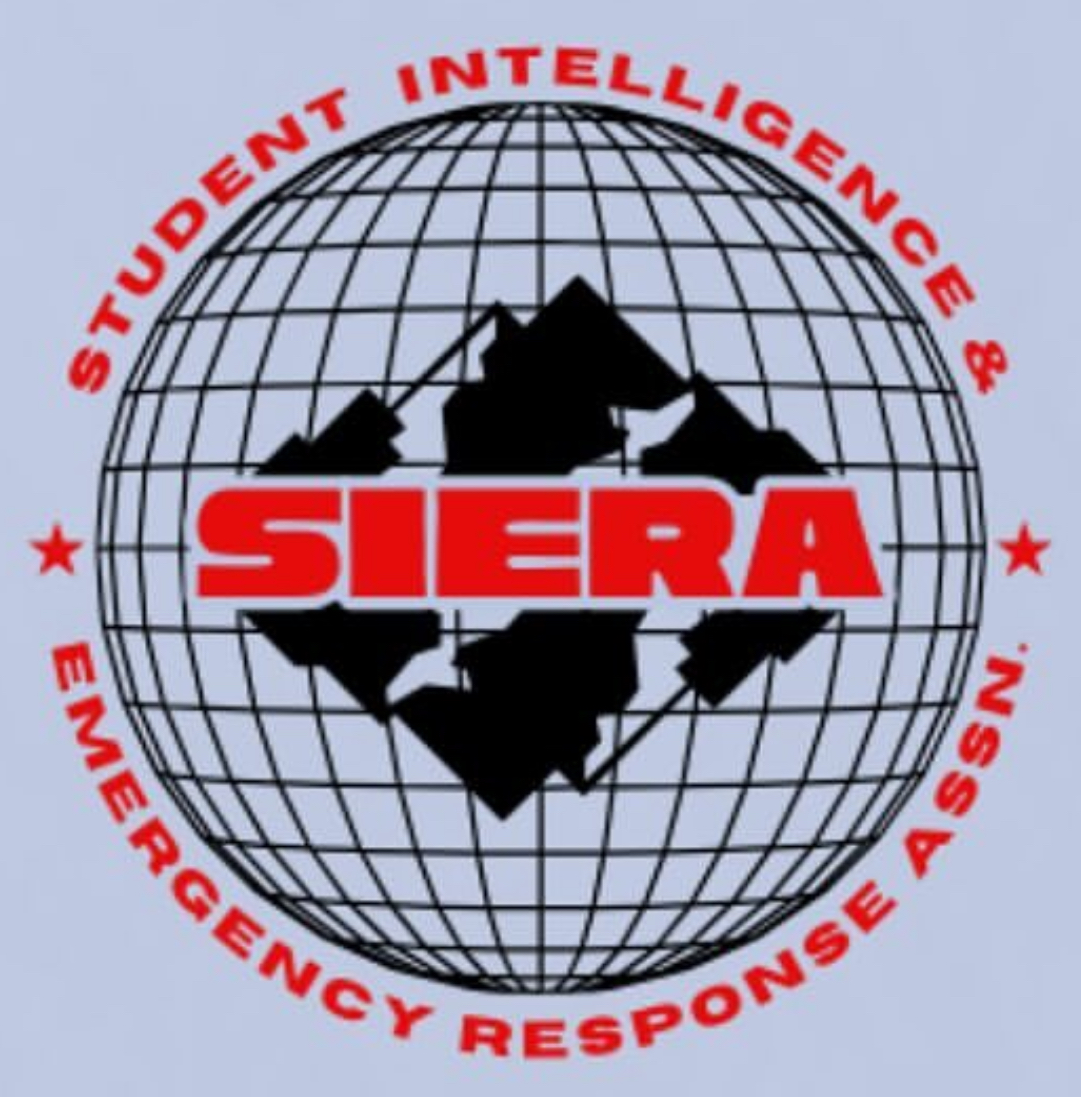
The Students in Intelligence and Emergency Response Association (SIERA) is a Registered Student Organization (RSO) created to foster a collaborative environment where students can explore and discuss topics related to emergency management, intelligence, emerging technologies, national and international security. SIERA connects like-minded students, faculty, and professionals from various fields through its meetings and events, offering a forum to educate and engage individuals on these critical issues.
Professional Conferences
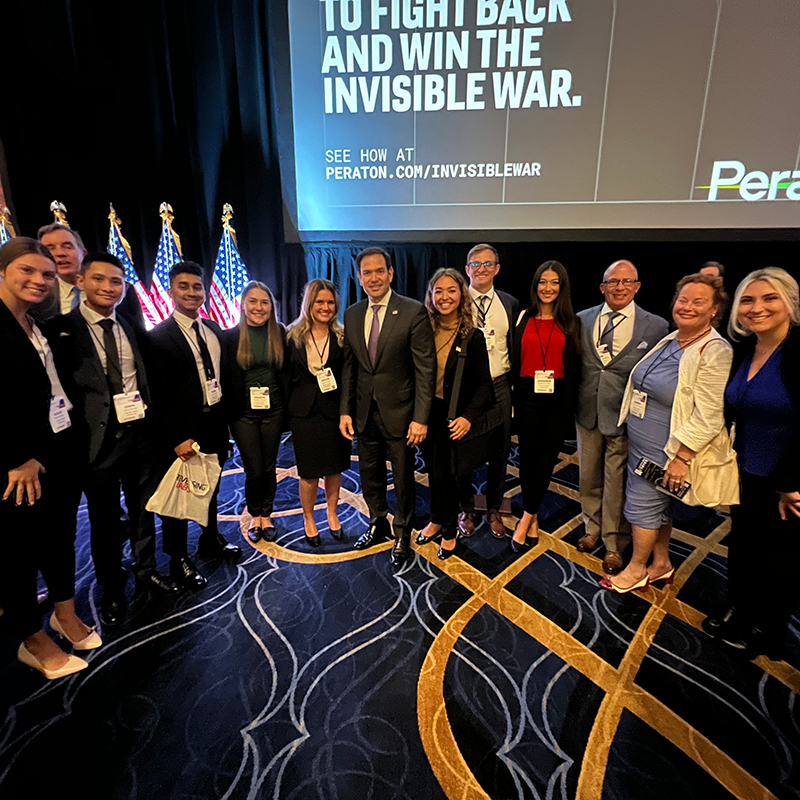
The EMHS Program has a presence at a variety of professional conferences throughout the year. We recruit students to attend these conferences with us, which provides participants with incredible networking opportunities and insight into current issues in the world of emergency management and homeland security.
Recruitment for these events happens via class announcements in Canvas and on EMHS social media pages. Students who would like more information can contact Sierra Perna.
DIAL
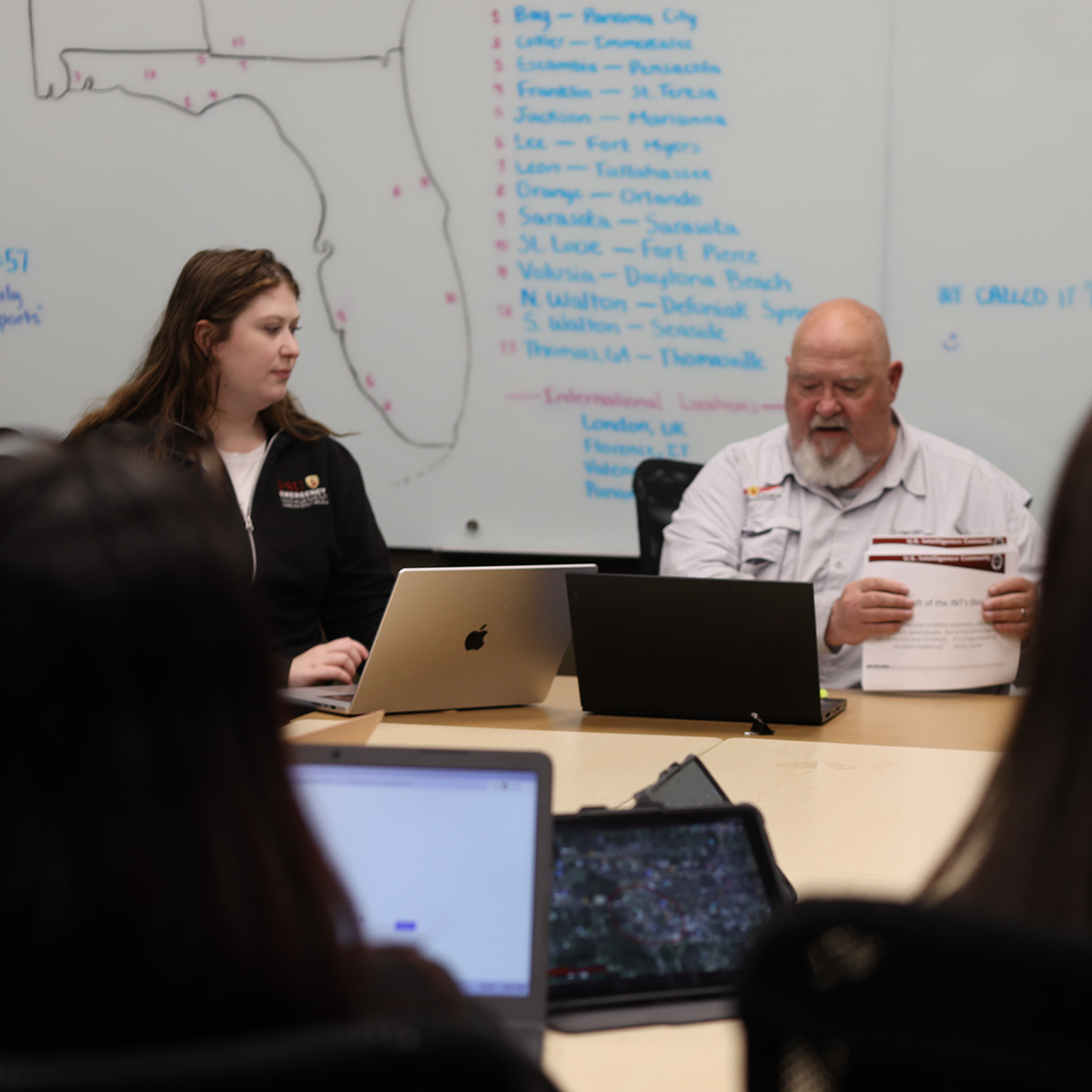
The Disaster Intelligence Analysis Lab is our flagship engagement program, and provides students with hands-on real world experience in open-source intelligence (OSINT), geospatial intelligence (GEOINT), stakeholder engagement, intelligence writing, and more.
DIAL operates Monday through Friday, 8am to 5pm, and provides real world intelligence support to stakeholders and partners across the state. There are no other opportunities like this at a college or university in the U.S.
Frequently Asked Questions
How much do classes cost?
All of our classes (including UAS courses) are charged at the tuition rate set by the University, and our office is not able to advise on financial matters. The most accurate information on this topic can be found through Student Business Services.

